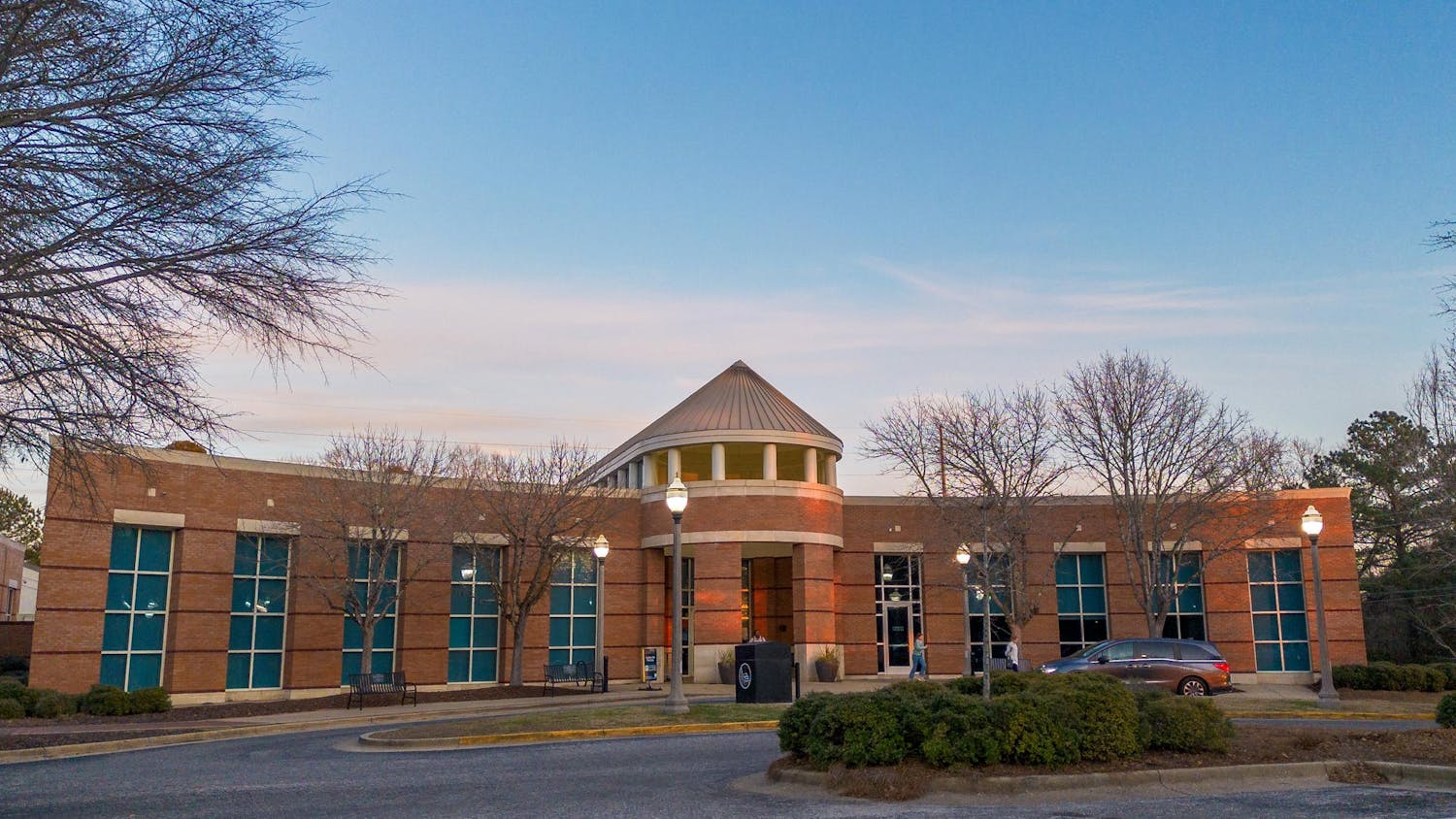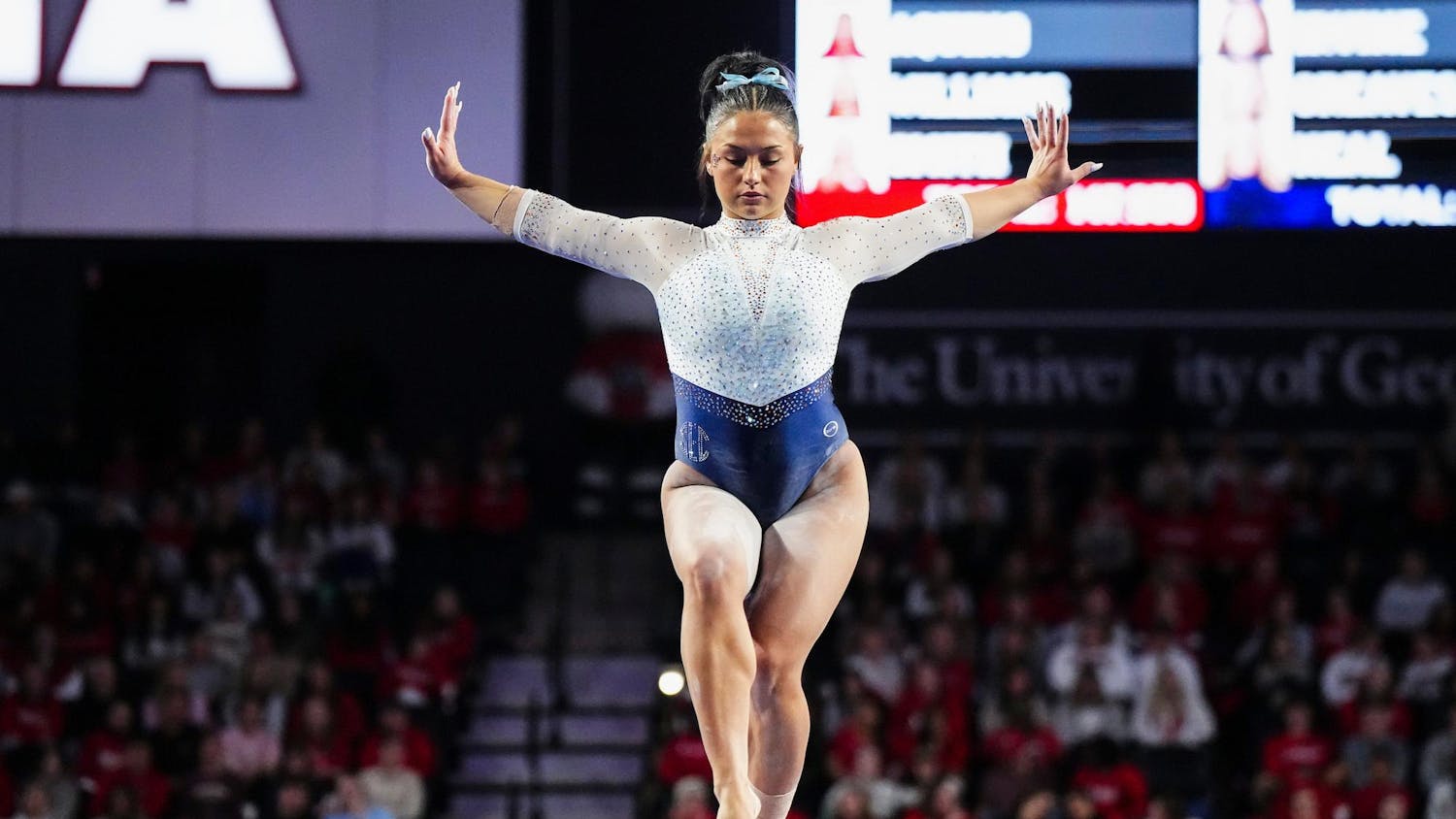Natasha Trethewey, former United States Poet Laureate and Pulitzer Prize winner, grew up knowing she 'needed to be a writer,' because her father always told her she "was going to have something important to say."
"I think he knew this because I was born in Mississippi in 1976 - interracial marriage was still illegal all around the country and just that experience of growing up illegitimately in the eyes of state meant to my father that I would have things to write about," Trethewey said.
Despite Trethewey's residence in other states throughout the US, she says Mississippi is still home. Trethewey attributes this to her summerly visits with her grandmother. She said Mississippi is the state that made her.
"Mississippi is a troubled state," Trethewey said. "I like to say, 'Mississippi is the state that keeps on giving,' because if something bad is going to happen, a lot of it's going to happen in Mississippi. But so much good happens in Mississippi."
Trethewey is proud of Mississippi's cultural advancements and the changes that have taken place there in recent past. She said she is proud to have come from a state of which she can have a 'love and hate relationship with'.
The three months spent with her grandmother were vital to Trethewey's growth, she said.
"Those months were dreamy," Trethewey said. "My grandmother doated on me. It was just me, a little princess to her, and my lovely grandmother."
Trethewey connects her visual and descriptive writing style to those days spent on her grandmother's land. She can describe the specific placement of items in every room of her grandmother's house in seemingly perfect detail. This was one way she was able to keep Gulfport, Mississippi, her hometown, with her no matter where she moved, Trethewey said.
"It seems like a very boring thing to explain to people, but it always seemed like I was describing it in a good way," Trethewey said.
Trethewey moved around and once her freshman year of college at the University of Georgia came around, her want to write poetry was solidified.
Her mother's murder spurred when she was 19 spurred this solidification.
"It's been 31 years since I lost my mother, but the grief still feels like yesterday, sometimes," Trethewey said.
Trethewey's mother was murdered by her second ex-husband, a troubled Vietnam war veteran, Trethewey said.
"My freshman year of college I tried to write a poem about [her mother's murder]," Trethewey said. "I tried to write a poem about what that grief felt like and after that I never really wrote again."
Trethewey's father encouraged her to continue writing and apply for graduate school, of which she did. Trethewey joined her father, him as a professor, her as a student, at Hollins University in Virginia. She received her masters in fiction writing at Hollins.
Trethewey said she saw nothing wrong with her father doubling as her professor, but she knows now that it was probably strange to the other students.
"I'm a southerner, I still called my dad 'Daddy'," Trethewey said. "They'd see me in the hall calling this white professor 'Daddy' and it was kinda weird to people."
Trethewey holds all of her father's unpublished manuscripts and plans to edit and publish them in the years to come. She said her and her father have similar styles of writing and content as they shared a life in some sense. Her first book was dedicated to her father and her last was directed to him.
"I see [the book] as a necessary conversation I had to have with him in the only language that he truly understood," Trethewey said.
Trethewey's youth influenced her writing that led to her being a Pulitzer Prize recipient for "Natural Guard."
She had become fascinated with the Louisiana Native Guards, one of the first officially sanctioned regiments of African American union soldiers. The Native Guards were stationed off the coast of Trethewey's hometown.
"Every Fourth of July, my grandmother would take me to tour [the fort] and they never mentioned anything about those black soldiers that had guarded the fort - who had guarded confederate prisoners," Trethewey said.
During her three years of teaching at Auburn, Trethewey would drive home for the weekend to take her grandmother to lunch. On one of these excursions, she 'accidentally' learned of the guards from a woman sitting close to her at dinner. The woman had listened into a coinciding conversation between the grandmother and daughter and felt that she had something to add to the conversation.
Trethewey said she was immediately taken with the light that was shed on the subject after speaking with the woman at dinner.
"There was the [Native Guard] part of the book and the part about my mother, but at that time I didn't know that these two things belonged together," Trethewey said.
"What my mother and those soldiers had in common was that they were both being effectively erased from the landscape cause no monuments had been erected in their honor and they weren't telling the story. All those years after my mother's death and I had not actually erected a proper monument, I hadn't put a stone on her grave."
What Trethewey thought was public history turned out to be something deeply personal, she said.
Trethewey's writing hasn't changed, per say, instead her concerns have deepened.
"I'm still trying to ask myself questions about history and about myself as a historical being," Trethewey said. "I find that I turn to paintings and photographs of a specific historical moment."
During Trethewey's first term as United States Poet Laureate, she held office hours in the Library of Congress for advising that were open to student groups, researchers and individuals. She facilitated conversation between poets through these meetings.Trethewey was the first to continue this advisement since 1985.
"Every year there are these pronouncements about the death of poetry and the people that came to my office proved to me, what I think most poet laureates have said, poetry matters to people," Trethewey said. "They might not always be walking around telling people, but I saw how much it mattered to those people that came and talked to me."
Do you like this story? The Plainsman doesn't accept money from tuition or student fees, and we don't charge a subscription fee. But you can donate to support The Plainsman.




